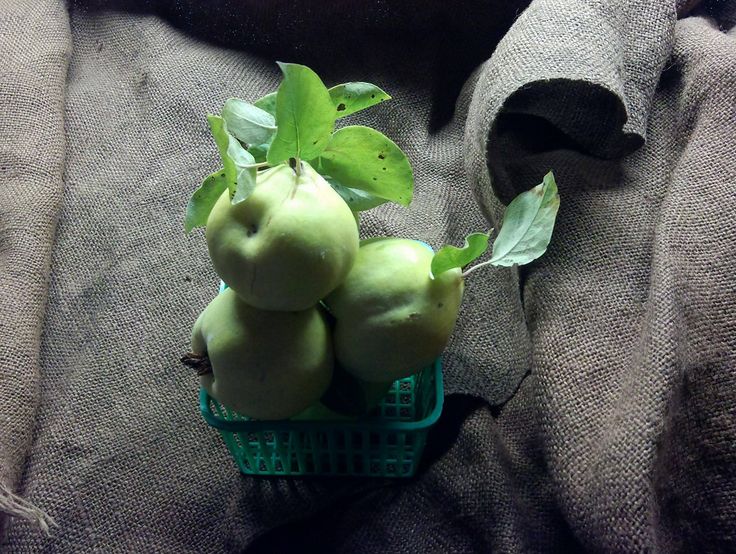Quince is a lumpy pear-shaped fruit that when ripe is nearly identical in color to a Golden Delicious apple. Unlike apples and pears, a ripe quince has a hard texture; if you find a soft one, it’s tipped over the edge from ripe to rotten. The skin is thin, and if you cut into it, the flesh is tough and spongy. This may sound unappealing, but the fruit’s tempting fragrance makes up for it. Quince smells like a vanilla-scented orange.
The quince is one of the most famous fruits in the world, but many people have never heard of it (and even fewer people have tasted it)-mainly because the apple seems to have stolen its identity. Probably the famous apples in the Garden of Eden and the Song of Songs of Solomon actually refer to the quince. For the ancient Greeks, quince became associated with love and fertility. It was a staple ingredient in wedding feasts and cakes, and the fruit was often tossed to newlyweds as a sign of commitment. As a sacred emblem of Aphrodite, a quince figured in a lost poem of Callimachus that survives in a prose epitome: seeing his beloved in the courtyard of the temple of Aphrodite, Acontius plucks a quince from the "orchard of Aphrodite", inscribes its skin and furtively rolls it at the feet of her illiterate nurse, whose curiosity aroused, hands it to the girl to read aloud, and the girl finds herself saying "I swear by Aphrodite that I will marry Acontius". A vow thus spoken in the goddess's temenos cannot be broken.
Pliny the Elder mentions "numerous varieties" of quince in his Natural History and describes four. ...read more
